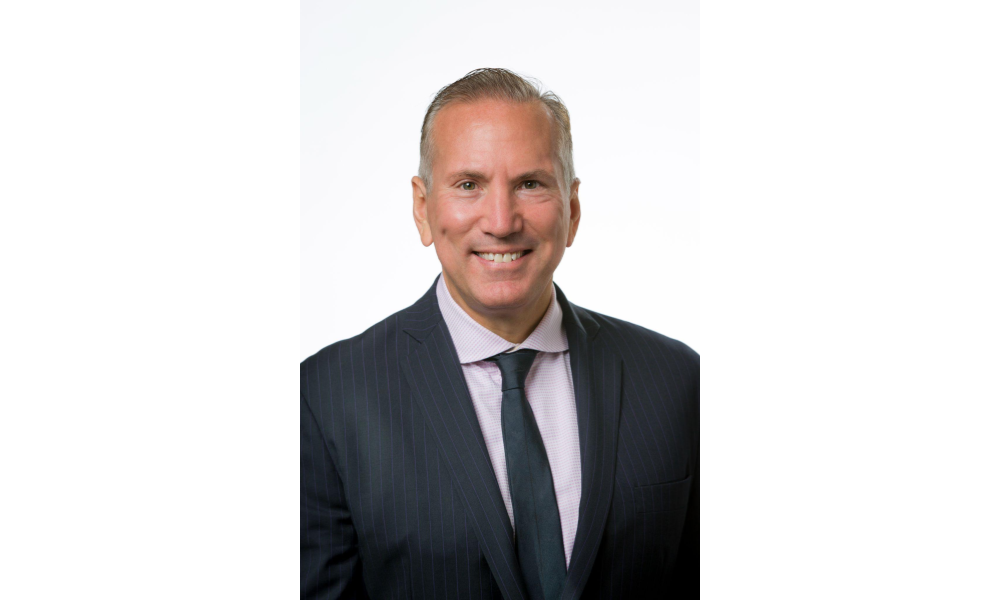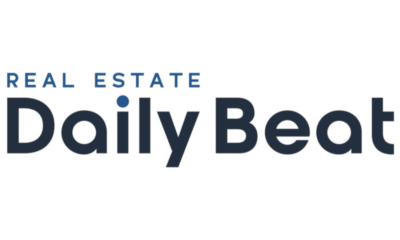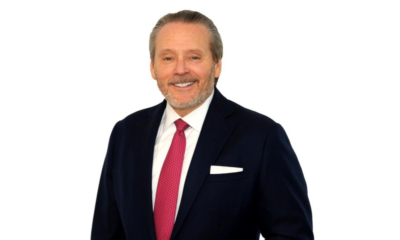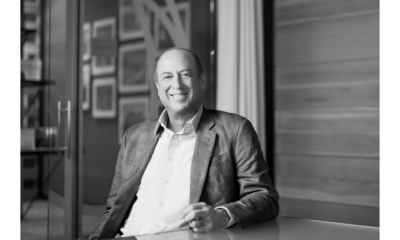Financing
Inside the Boardroom: Stephen Rosenberg
By
Joseph Richter

Stephen Rosenberg, Founder & Corporate CEO at Greystone, joined the Real Estate Daily Beat for an interview. Our conversation came on the heels of Greystone selling a 40% minority stake in their Agency, FHA, and Servicing businesses to Cushman & Wakefield for $500 million. We discussed his vision for the deal, how to create a moat in commercial real estate, the potential privatization of Fannie & Freddie, the SFR market, and other interesting topics.
Daily Beat: Congrats on the Cushman news. What was the impetus behind the deal?
Stephen Rosenberg: The deal is driven by two main factors that complement each other well.
We are always looking for access to more transactions where we can provide the debt. Cushman gives us access to a few thousand originators instead of the hundred we have at Greystone. The ability to build relationships with some of their clients and provide debt was really exciting. I think that’s the low-hanging fruit.
Secondly, we want our debt products to be cutting edge, not just the typical products that everyone else is offering. The $500 million that they gave to us for their minority interest in the agency lending & servicing platforms allows us to be very creative with clients in ways that other lenders would not do.
Whether it’s early rate lock or hedging without requiring margin calls for borrowers, there’s a lot of things that Greystone has been doing for 30 years that we can now do for a larger population of the world.
It’s also worth noting that the deal for the minority interest is not across the entire Greystone, but was only for a stake in the agency lending and servicing divisions. The deal didn’t include other divisions like our bridge lending and CMBS platforms.
Daily Beat: What’s the vision moving forward?
Stephen Rosenberg: I feel like my job is to make Cushman the number one real estate services firm in the country. CBRE and JLL are currently ahead of them and my job is to make sure that doesn’t continue. And the way I’m going to do that is we’re going to provide unparalleled cutting edge solutions for their clients and things that public companies like CBRE and others just don’t do.
Daily Beat: What’s Greystone’s moat? Is it more about relationships or the product?
Stephen Rosenberg: I think it’s kind of both. My kids always ask me why I always do the triple backflips to win business when sometimes just showing up is enough, but I tell them that the key to our success is a combination of relationships and offering the best product out there.
Sometimes because of the relationships, the borrowers are too busy doing something else, so they’re not really digging into how good the product is – they just get used to it. If all you’ve seen on a scale of one to 10 is an eight, then you don’t know that a nine or a 10 exists. It’s a combination of the two and depends on the personality of the client.
Daily Beat: The Trump administration decided against privatizing Fannie Mae and Freddie Mac. Recent comments from Sandra Thompson about loosening capital requirements and lifting some restrictions on preferred stock purchase agreements had the industry buzzing. What happens to your business if they come out of conservatorship?
Stephen Rosenberg: I don’t really want to be in a position of having to predict how much business the agencies will be doing in any given year. So even though, this past year, they reduced the amount of business they can do, they also said half of it has to be affordable, which left a lot of market-rate transactions seeking financing solutions away from the GSEs.
The way we have to manage our business is we have to assume that the agencies are not there. If they are there, that’s fantastic. We have to assume that they won’t be and create alternative products to satisfy the demand of our clients. I think that’s the only way to manage the business these days.
Daily Beat: How does the recent decline in the vitality of the traditional brokerage world impact your business? Do you see yourself as a brokerage in any sense?
Stephen Rosenberg: We are immune to it and maybe in a great position because of it.
We are lenders, not brokers. Everything we do is taking principal risk. Now it is true that with Freddie Mac & HUD there isn’t principal risk – Fannie Mae does have risk sharing – but our bridge lending platform is really thriving because people want to buy properties, increase the rents, and then put permanent financing in place.
When we’re making a loan, we will frequently carve off the A piece, sell it to someone and keep the B. Everything is getting cut up and sold in part or in whole these days.
Daily Beat: What are you seeing in the multi-market nationally? Which markets are you most excited about? Deals in Miami and Austin are trading at three caps!
Stephen Rosenberg: U.S. multi-family has turned into something that everybody seems to want to get their hands on – it has become a true global asset class. Markets like South Florida, parts of Texas, and New York are extremely sought after.
Yes, there are low cap rates and people are betting on the fact that rents will continue rising because there’s a lack of housing. We’re seeing a ton of action in the affordable housing space. Everyone is kind of stunned that the market has continued to be so hot.
Daily Beat: What happens to the multi-family market when interest rates go up?
Stephen Rosenberg: I don’t know. It could be that cap rates will go up, but maybe not. Perhaps people will just take lower yields, but many are stunned – who ever thought multi-family would sell with a three handle cap rate?
Daily Beat: What are you advising your multi-family clients in this market?
Stephen Rosenberg: If you’re taking out a five-year or a ten-year loan, multi-family is such an interest rate sensitive product, how do you not take advantage of a 35-year self-amortizing HUD loan with a two handle interest rate? Utilizing a loan like that protects you from the inevitable rise in rates.
The reason people often give is that with either banks or the agencies, they can get an interest-only loan, which allows them to generate more immediate cash flow for their investors even though their debt is amortizing.
The bottom line, though, is that on a low interest rate, self-amortizing loan, the principal portion of it could be a point and a half or almost a point in three quarters. That could eliminate the cashflow to you, even though the debt is the best debt for you.
Daily Beat: Buyers who are over-leveraged will be in trouble when interest rates rise.
Stephen Rosenberg: Yes. The reality is that interest rate sensitivity can mess people over even if they’re not over-leveraged. If in five years or in 10 years from now, you’re looking at 300 basis points higher interest rates, you could be cooked.
Daily Beat: Has Greystone gotten involved in the SFR market?
Stephen Rosenberg: We are in the process of getting involved.
Daily Beat: Will the asset class simply be at the mercy of the overall housing market?
Stephen Rosenberg: I think the single-family rental market is larger than the multi-family market. It used to be more mom-and-pop and it’s become more institutional over the recent couple of years. The mindset of the country has changed with regard to the American dream and owning your own house. There are a lot of people that don’t have the deposit or the ability to get the financing, but they still want a house and this is a good option for them.
Daily Beat: So if the housing market were to go down by 15%, you’re suggesting that this won’t result in the SFR market decreasing by the same amount because it’s basically a rental unit. And especially with build-to-rent where the economics are more similar to multi-family?
Stephen Rosenberg: That’s exactly right. The kids can go out and play and you don’t have to get dressed and go down the elevator.
Daily Beat: Can you please share why Greystone’s CMBS platform is so important?
Stephen Rosenberg: We hired the leader of the Starwood CMBS platform and we’re hoping that’s also going to position us well because that’s an agency alternative. When you talk about Fannie and Freddie maybe not being there or perhaps being smaller – whatever the government decides – the closest agency alternative is the CMBS program.
Given that Cushman is smaller in multi-family than all the other asset classes, I’m thinking that our CMBS platform should serve those investment sales brokers – the non multi-family ones – very well.
Daily Beat: What are your thoughts on the ever expanding alternative lending universe? How does Greystone differentiate itself?
Stephen Rosenberg: As a private company, Greystone is able stretch for borrowers in a way the competition just can’t. Sometimes it’s early rate locking, while other times it’s putting a mezzanine piece behind the CMBS or preferred equity behind an agency.
In the 11th hour of a deal, the borrower often loses a piece of equity and we have to fill in that gap, which gives another six months or a year to repay us. We have a special situations group that just focuses on bridging equity.
We already raised $1 billion, but we probably need an additional billion or two – which itself gets leveraged three of four times – just to just to keep up with the volume. For every billion, we can do $4 billion of lending. The way the volume is now we probably need another $2 billion, which would give us an additional $8 billion of lending.
Daily Beat: And you attribute that demand to the velocity to the market and new sponsors?
Stephen Rosenberg: I think there’s just a lot of transactions on the multi-family front and many are value-add opportunities that people are trying to uncover. Also, with the agencies cutting back on market-rate housing to do more affordable, investors are looking for good financing and many are looking at bridge right now.
Daily Beat: The Cushman deal is obviously a major inflection point for Greystone. When you look back at the journey, what are you most proud of?
Stephen Rosenberg: The thing that I’m most proud of is that the mission of Greystone is really to enhance people’s lives. We give a significant percentage of our profits away to families in distress around the world.
The number of families that we have impacted in a positive way – some of them stay with us where we’re helping them on a monthly basis for years. We may not give a lot to universities or hospitals or other sophisticated organizations, but we’re very grassroots and help individual families out of really tough situations. That’s certainly what makes me most proud.
*The interview has been edited and condensed for clarity.





